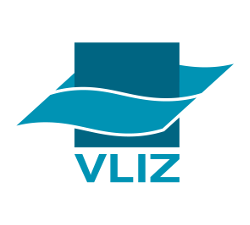
Interview with Dr Jan Reubens
Late last year, Principal Specialist in Marine Protected Areas Jean-Luc Solandt interviewed project partner Dr Jan Reubens to investigate why Fish INTEL is so fundamental to the science he has been doing.


Dr Jan Reubens collecting field specimens
Dr Jan Reubens has been tracking fish for 12 years, working in the offshore and nearshore seas of Belgium. His PhD was on tracking cod in and around windfarms.
Jan is the coordinator of the permanent Belgian receiver network that has been recording the movement of fish and invertebrates in Belgium waters since 2014 in the framework of LifeWatch. He also chairs the COST Action ‘European Tracking Network’.
Along with his institution VLIZ (the Flanders Marine Institute), Jan is a key partner for the Fish INTEL project.
How did you get into marine science?
This was really by chance, picking the shortest straw for a thesis topic. One would be on nematodes, the other on fish… And I was lucky picking the one on fish… Since then I’m deeply involved in fish 😊.
However, I lived my entire youth near the coast and you could find me all summers (and in winter too) at the beach! Thus, I suppose that my youth memories influenced my study choices and interests in one way or another.
Belgium has a very small EEZ. How does that affect the country’s feel about the sea?
Although it is a very small Exclusive Economic Zone (EEZ), it plays an important role in many people’s life! Fisheries, economics, tourism, sports… it impacts our lives in many ways.
Zeebrugge and Antwerp were massive historical ports. Does maritime industrial and commercial history dominate issues of sustainability of the environment?
Yes they do, and it goes back far in time. Our waters used to be clearer and we used to have natural oyster reefs. Fishing on these reefs resulted in changes in the structure of the seabed and water has become more turbid (murky). In addition, harbours played an important role in eutrophication (excessive richness of nutrients leading to low oxygen levels in the water and algal blooms), but also in the underwater noise (vessel traffic), dredging and other commercial activities in the area.

Zeebrugge
Credit: Ben_Kerckx | Pixabay
You tag and record the movement of all sorts of fish. What are the most amazing things you’ve discovered?
All data is amazing! But if I need to choose one thing, that it is the straight movement of cod between turbines. It seems they exactly now where the turbines are and they just move in a straight line between them. It’s still unclear what the cues are they use to do so, but it is amazing.
Windfarms are developing fast in EU seas. Do you see that the environment can adapt to these structures?
Difficult question! It depends from what perspective you look at this. Windfarms are not all good or bad and it depends on the species, the environment you are working in and the mitigation measures taken during construction and/or operation. We are starting to get good insights at turbine and windfarm level, but cumulative effects are not yet taken into account sufficiently. What will the effect be from all windfarms together on different aspects of the environment…? Hard to guess right now.
Do you think we need to fully decommission windfarms after their lifetime, or should we keep them in place as ‘artificial reefs’?
Another hard question 😉… Once again it depends on how this will be implemented. If these become protected reefs (where no human activities are allowed) then it might be very beneficial for some fish stocks. However, if it will be combined with fishing or aquaculture activities, it might become another story. We need a thorough discussion with all stakeholders involved and careful assessment needs to be made on the different scenarios.
How do you think Fish INTEL will help fisheries management both within Belgium and other partner countries?
Fish INTEL is the first project to my knowledge that tackles fisheries management using tracking technologies on an international level. This is an important step forward, and I hope many projects of its sort will follow. It is important that fisheries management links local regulations to the fish behaviour (on a more individual level), which in its turn links to habitat characteristics. And that is exactly what Fish INTEL is doing and why this will be a major contribution to sound management.


